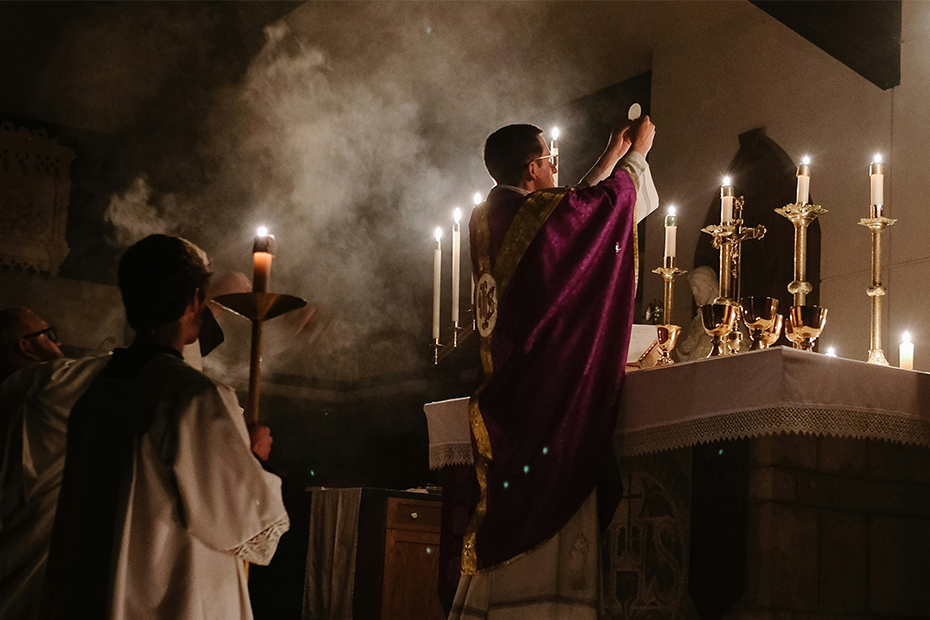By Susan Ciancio
“I have not met one person who loved Christ as a Christian but not as a Catholic, who when they heard this didn’t end up becoming Catholic.”
Fr. Mike Schmitz made this powerful statement during a talk to a group of young people at a Fellowship of Catholic University Students conference. What was he talking about?
He was discussing Jesus’ teaching on the Eucharist in chapter six of John’s gospel.
In that chapter, Jesus says not once, not twice, but five times that He is the bread of life who has come from heaven and that whoever eats this bread will live forever.
As Jesus spoke more and more fervently about this, He eventually said, “My flesh is true food, and my blood is true drink. Whoever eats my flesh and drinks my blood remains in me and I in him.”
To this, many of His disciples remarked, “This saying is hard; who can accept it?”
In fact, it was so hard for them to understand that they walked away.
Did Jesus call them back, saying they misunderstood and that He was speaking figuratively? No, He did not.
He let them go because this was a teaching He could not and would not change. This teaching was that important that He let many walk away from Him.
He then turned to His Apostles and asked if they were going to leave too, and Peter responded, “Master, to whom shall we go? You have the words of eternal life.”
They would not leave; they knew who He was. They had seen Him heal the sick, raise the dead, and perform countless miracles.
Today and every day, we must think like Peter on that day when He asked Jesus, “To whom shall we go?”
Christ is our life. He came here to redeem us and save us from our sins. And He did so by allowing Himself to be beaten, bloodied, broken, and crucified. But before the day when we experience so much sorrow and grief, Jesus instituted the Eucharist and the priesthood when, during the Last Supper, He broke the bread and said, “This is my body, which will be given for you; do this in memory of me.”
Do this. Through His Apostles and all future Catholic priests, Jesus performs the miracle of transubstantiation. Yes, Jesus is truly present—body, blood, soul, and divinity—in the Eucharist.
The Eucharist—the source and summit of our Christian faith—is not a symbol of Christ. It IS Christ.
And as Fr. Mike explained in his talk to those college students, “If you don’t want the Eucharist, you don’t want Jesus.”
This may sound like a harsh statement, but it’s absolutely true. If we don’t want the Eucharist, which IS Jesus, then we don’t want Him.
It’s not that difficult to believe that the God who made the universe and all the creatures within could change bread and wine into His body and blood. Yet many people act like those disciples and walk away from Him. They leave the Church, they become lax in their faith, or they outright deny Him. If this is you, know that Jesus wants you back. He allowed you to walk away from Him, just like the disciples in the Gospel of John, but He desperately longs for your return. He wants a relationship with you, one that begins at confession and leads you to His true presence in the Eucharist.
So let us not be like the disciples who walked away. Let us be like the Apostles who stayed as we remember that the Eucharist is truly a gift, one that we are free to receive every day at Mass if we are free from mortal sin. And let us choose to love and revere Him in the Eucharist, for by receiving Him, we grow closer to Him, we nourish our souls, and we glimpse a piece of heaven.
Begin a conversation about the Eucharist with your teens by using our Conversation Starter.
